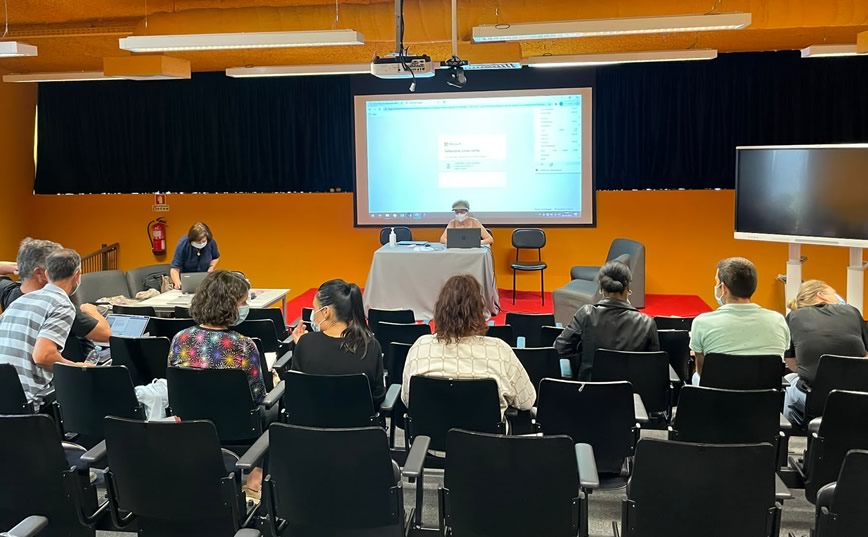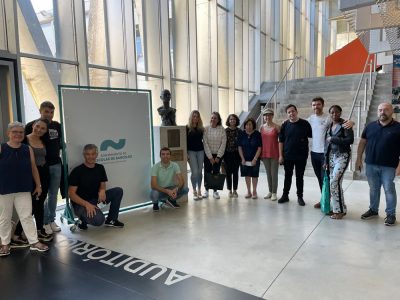
The second meeting of the consortium of the European project DTICEQT took place in Barcelos, Portugal, on October 6, 7 and 8. Coordinated by the Educational Technology group of the USC Tecnoeduc, the researchers Carmen Fernández Morante, Beatriz Cebreiro López, Milagros Trigo Miranda, Javier Garbayo Montabes and Enrique Latorre Ruiz participated in this meeting.
DTICEQT (Digital Technology, Imagination, Creativity and Entrepreneurship for High Quality Teaching), Erasmus+ KA2 project, of the strategic action cooperation for innovation and the Exchange of Good practices, aims to promote the development of digital teaching skills among teachers and identify learning areas in which creative digital teaching could improve the experience of students. It has a total funding of 157,356.00 €, and is integrated by a consortium of seven institutions, six of which are schools.
In an increasingly digitized world that has only accelerated due to the challenges arising from the COVID-19 health crises, this training will be of great value to all current and future teachers.

In DTICEQT, activities will be carried out that reinforce and complement international cooperation and virtual mobility between schools, students and other institutions with the aim of achieving excellence in school teaching and learning. This involves strengthening the teaching profession at all educational levels by improving digital skills addressed through the design of innovation strategies with which to offer students a high quality inclusive education. Therefore, it will be necessary to identify the innovative technologies and practices that are appropriate to each curricular area and learning competency and to implement flexible and creative learning environments through the use of technology, in order to reduce school failure and increase the number of students who pursue post-compulsory education.
